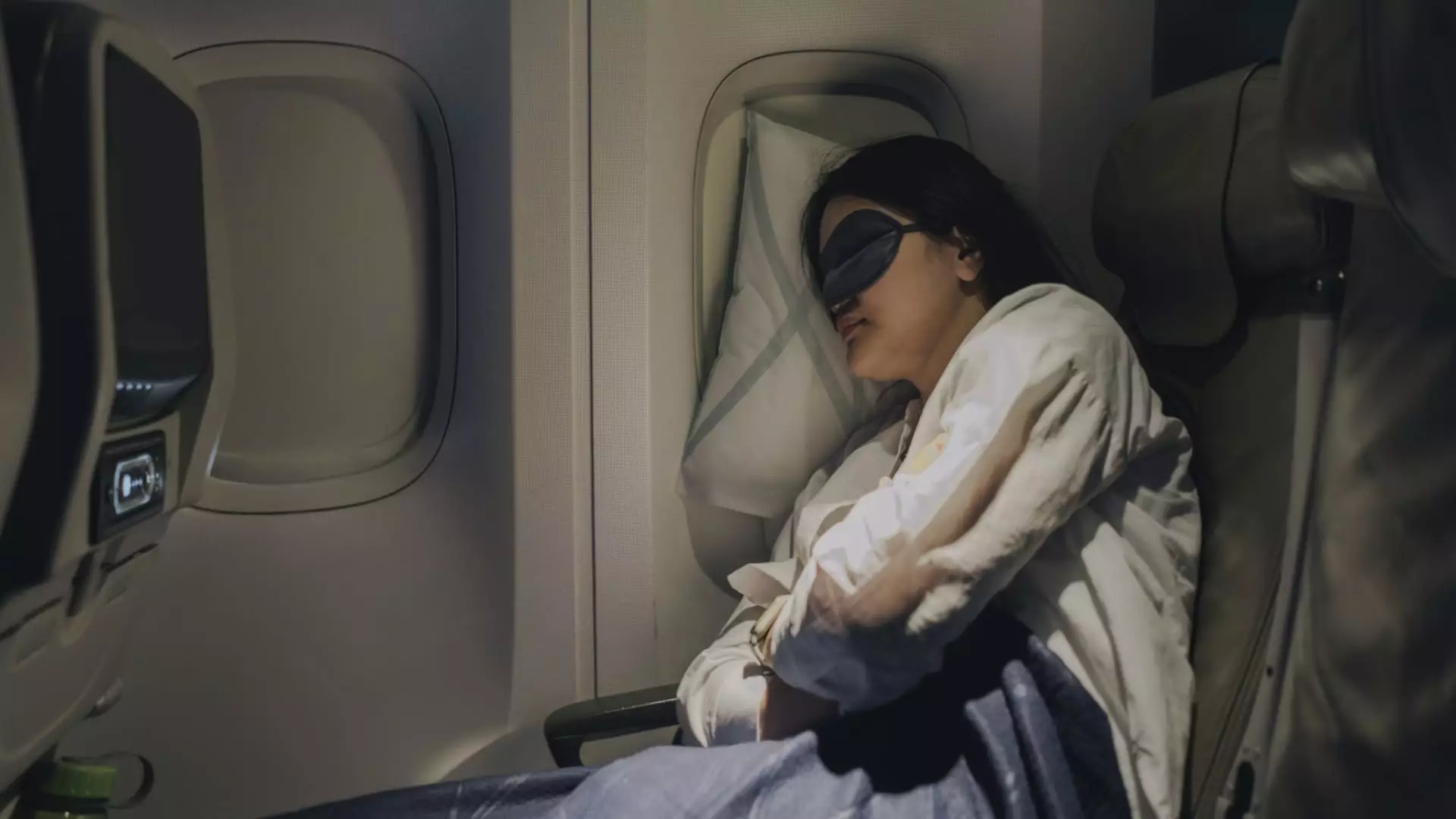Long-haul flights are often associated with drinking alcohol to help passengers sleep, but a new study has found that this behavior may actually pose health risks, even for young and healthy individuals. The combination of alcohol consumption, sleep, and the low oxygen levels at high altitudes can put added strain on the cardiovascular system and prolong periods of low oxygen in the blood.
The researchers from the German Aerospace Center’s Institute of Aerospace Medicine and Aachen University have recommended that airlines consider restricting the inflight consumption of alcoholic beverages. The study’s co-author, Eva-Maria Elmenhorst, emphasized the surprising strength of the negative effects of alcohol on inflight health and suggested that passengers should avoid alcohol while flying.
In addition to cardiovascular strain, the study also found that alcohol consumption reduces the quality of sleep during flights. The already decreased oxygen levels in aircraft cabins can be further exacerbated by alcohol, resulting in lower blood oxygen saturation, increased heart rate, and a reduction in deep sleep. Even participants who were young and healthy experienced significant drops in blood oxygen levels and increases in heart rate during sleep.
The study warned that higher doses of alcohol could amplify these negative effects, posing a greater risk of health complications and medical emergencies during flights. This heightened risk is particularly concerning for older individuals or those with pre-existing medical conditions. The combination of alcohol, inflight sleep, and low oxygen levels create a potentially dangerous situation that could lead to serious health issues while in the air.
It is essential for passengers to be aware of the risks associated with drinking alcohol on long-haul flights. By understanding the impact of alcohol consumption on sleep quality, blood oxygen saturation, and heart rate, individuals can make informed decisions about their inflight behavior. Airlines should also take note of these findings and consider implementing measures to restrict the availability of alcohol onboard to ensure the safety and well-being of all passengers.


Leave a Reply